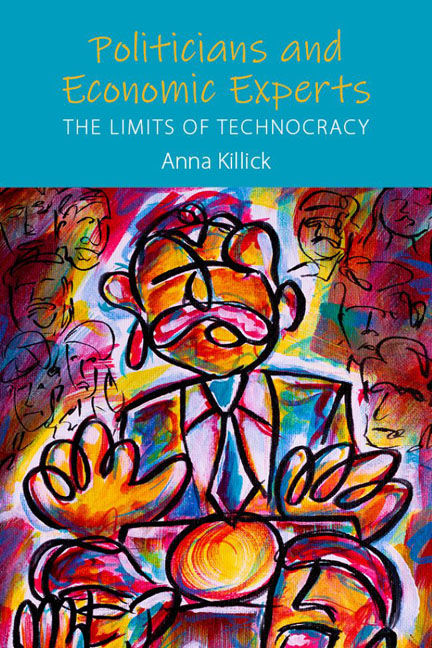5 - Denmark and Germany: “Home-Grown” Economists
Published online by Cambridge University Press: 20 January 2024
Summary
In Denmark we see that the Scandinavian model is what we all like, so, having an academic from the UK or the United States, it's difficult because people are looking at them saying: “Oh, do you really want to have that system, as they have in the United States?”
(Danish Liberal, former minister)
I can't ignore science. Politicians are not obliged to implement the advice of science, but they must know and listen to science. Afterwards, politicians alone can decide.
(German CDU/ CSU politician)
In this chapter I consider the attitudes of Danish and German politicians towards economists. I consider them together, because they are often categorized as “coordinated” economies, both with consensual political systems. In the case of Denmark, I focus on the politicians from all parties to show how there is a consensus on economic ideas. There is also a commonality in how Danish politicians see economists that spans across the political spectrum. However, in the case of German interviewees, I have already considered left and far-left German interviewees in Chapter 4. The attitude of the German right to economists is distinct from that of the German left; therefore, in this chapter, the focus is on the German right alone.
One feature that ties the interviewees together in this chapter is a relatively high degree of respect for economists, but of the home-grown variety only. Denmark and Germany each have councils of economic advisers that are independent of government and check on the soundness of their economic policies. The Danish councils are chaired by four university economics professors, who are often referred to as the “wise men”; one interviewee even described them as “wizards”, somewhat ironically. In Germany, two of the current members of the Council of Economic Experts are women, and they tend to be referred to as “the sages”. I found similarities in the relatively high degree of respect Danish centrist and the German right interviewees showed for these home-grown economists’ professional authority, whether “sage” or “wise”. Technocrats might argue that this Danish and German respect for experts means that they do not need to cede power to them as, by definition, they must already be delivering “responsible” economic policies. However, in the German case in particular, economic policy is becoming more contested, and there has been some shaking of faith in economic expertise.
- Type
- Chapter
- Information
- Politicians and Economic ExpertsThe Limits of Technocracy, pp. 65 - 82Publisher: Agenda PublishingPrint publication year: 2022

